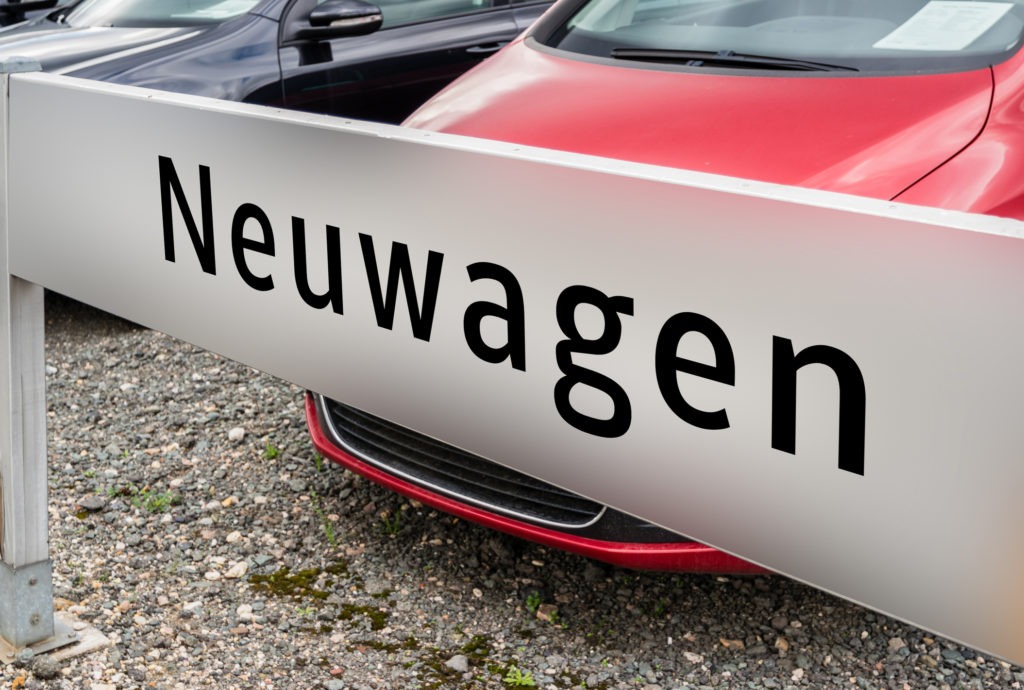German new-car market ends 2021 with modest improvement
06 January 2022

A total of 227,630 new cars were registered in Germany last month, according to the latest figures released by the Kraftfahrt-Bundesamt (KBA). This is a 19.7% decline compared to the same month in 2019 but compares favourably with the dramatic declines of over 30% in October and November.
Admittedly, December benefitted from three more working days than two years ago, whereas there was only one more in November. Nevertheless, on an adjusted basis, Autovista24 calculates the market contracted by 31.1% last month, which still marks a modest improvement on the adjusted 36.7% fall in November.
As dealerships endured COVID-19 lockdowns and subsequent releases of pent-up demand, year-on-year comparisons with 2020 are not helpful. On this basis, the latest figures are compared to 2019, which better represents the true performance of the country’s new-car market.
2021 derailed
In addition to contending with COVID-19 and supply constraints, German consumers are also battling rising energy costs and broader inflationary pressure. The year-on-year inflation rate in the country rose further to 5.3% in December, according to the Statistisches Bundesamt (Federal Office of Statistics). For 2021 as a whole, the department estimates an average inflation growth rate of 3.1%.
Despite the modest year-end rally, these factors conspired to derail the expected recovery of the car market in 2021. The full-year tally of 2.62 million registrations marked the third year the country has registered fewer than three million new cars since 2010, and the 27.3% contraction versus 2019 was weaker than in other European countries such as France and Italy. Moreover, Germany was the only one of the five leading European markets to decline year on year, by 10.1%.
In contrast to other countries, COVID-19 cases fell in December and the emergence of the Omicron variant has only resulted in a comparatively subdued rise since the end of December. Furthermore, over the course of 2022, inflation is expected to decline, and supply-chain bottlenecks are expected to ease. In this context, Autovista24 has increased its forecast for the year to 2.9 million new-car registrations, equating to year-on-year growth of 10.5%.
Germany’s Association of International Motor Vehicle Manufacturers (VDIK) is slightly more optimistic. The body ‘anticipates a new registration volume of around three million passenger cars. That would be an increase of 15%.’
EV incentives extended to end 2022
Despite the overall decline in new-car registrations in 2021, electrically-chargeable vehicles (EVs) gained significant ground. Battery-electric vehicles (BEVs) and plug-in hybrids (PHEVs) enjoyed the greatest growth rates of all fuel types to capture 13.6% and 12.4% of the market, respectively. The combined EV share increased from 13.5% in 2020 to 26% in 2021, easily surpassing the 20% diesel share. Nevertheless, petrol remains the leading fuel type in Germany, accounting for 37.1% of registrations last year.
Germany’s new ‘traffic-light’ coalition government aims to have 15 million BEVs on the roads in Germany by 2030. It came as no surprise, therefore, that on 13 December, Robert Habeck, the new Federal Minister for Economic Affairs and Climate Action, announced the extension of the purchase incentives for EVs to the end of 2022. BEVs will continue to benefit from a subsidy of up to €9,000 and PHEVs up to €6,750.
‘The electric-car purchase premium is essential for the success of electric mobility in Germany. We therefore very much welcome the announcement by the Federal Minister of Economics. This creates planning security for customers, dealers, and manufacturers. The previously threatened slump in the e-car market can thus be averted,’ commented VDIK President Reinhard Zirpel.
The VDIK expects around 850,000 new EV registrations in Germany in 2022, which would equate to a 28% market share based on their assumption of a total market of three million units. Given the 26% share achieved in 2021, this forecast could prove to be bearish.
New regulations in 2023
The government plans to introduce new regulations in 2023 and Zirpel has warned against ‘a too strong meltdown of the purchase bonus in the coming years. Instead, the German government should consider continuing the environmental bonus beyond 2025. After all, the traffic-light government has set itself a very ambitious target of 15 million electric cars by 2030. To achieve this, the subsidy must fit.’
If the bonus is reduced too dramatically in 2023, the pull-forward effect would be positive for EV registrations in 2022, and the overall market, but negatively influence demand in 2023 and beyond.
As it stands, Autovista24 forecasts further market growth of 6% in 2023, approaching 3.1 million units, but there is significant uncertainty as far as regulations, supply shortages, and COVID-19 are concerned.



